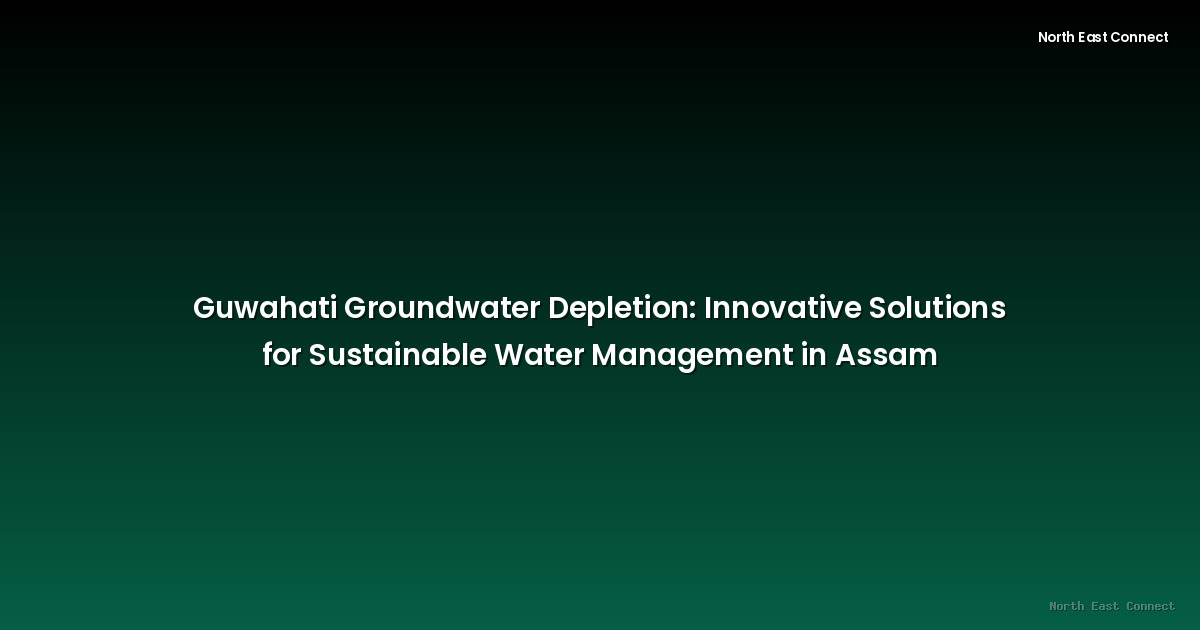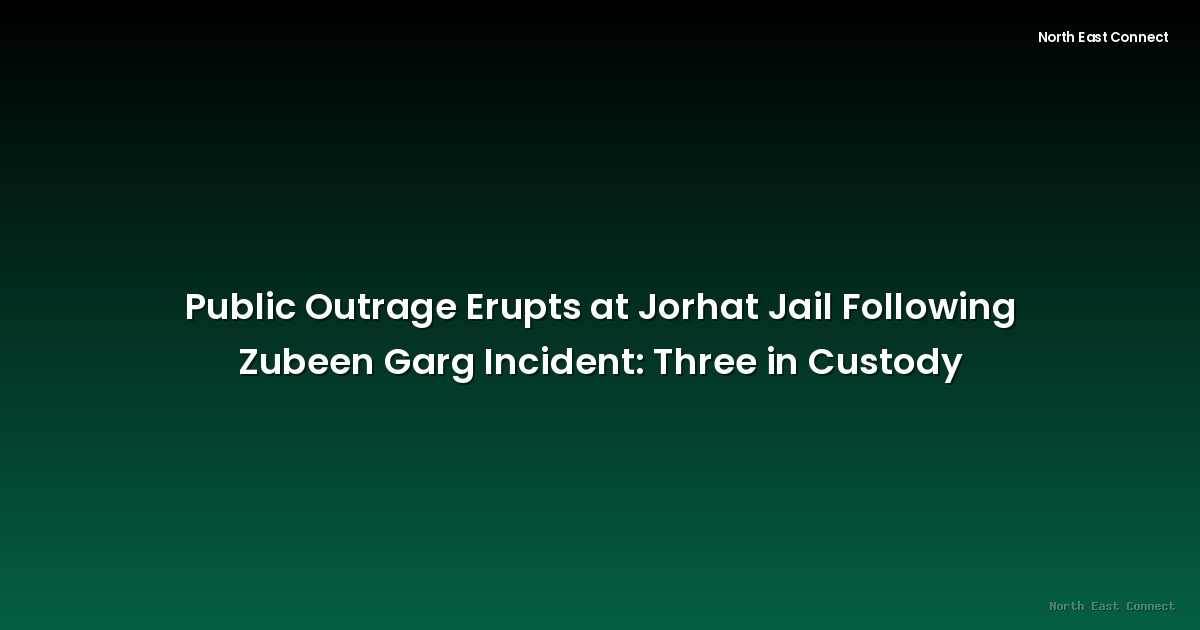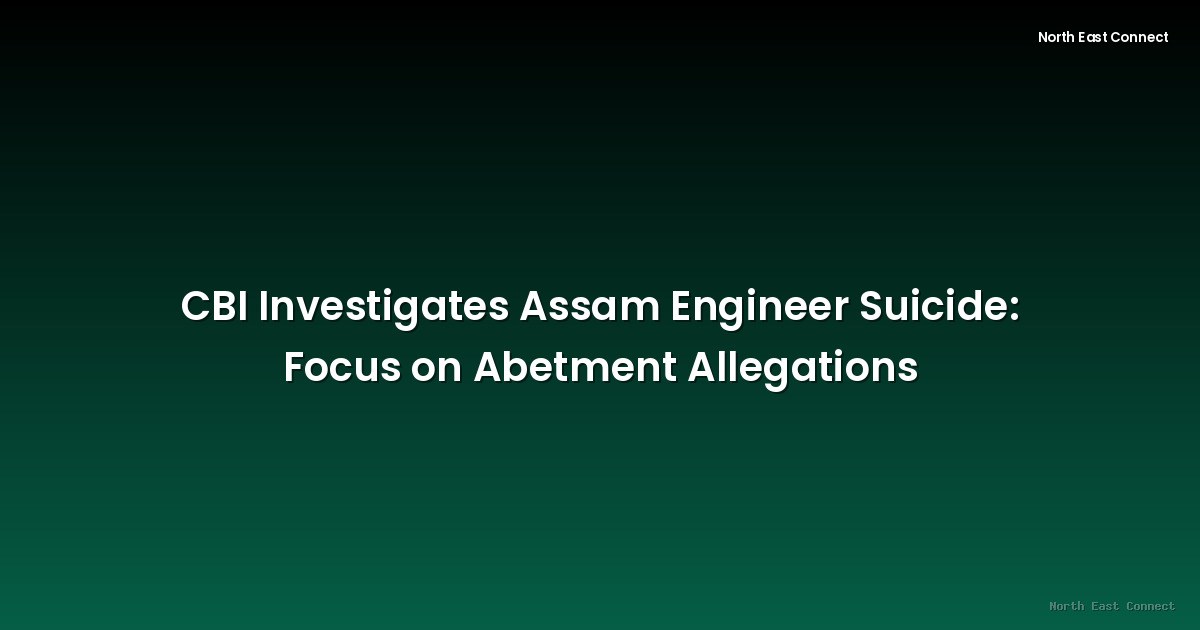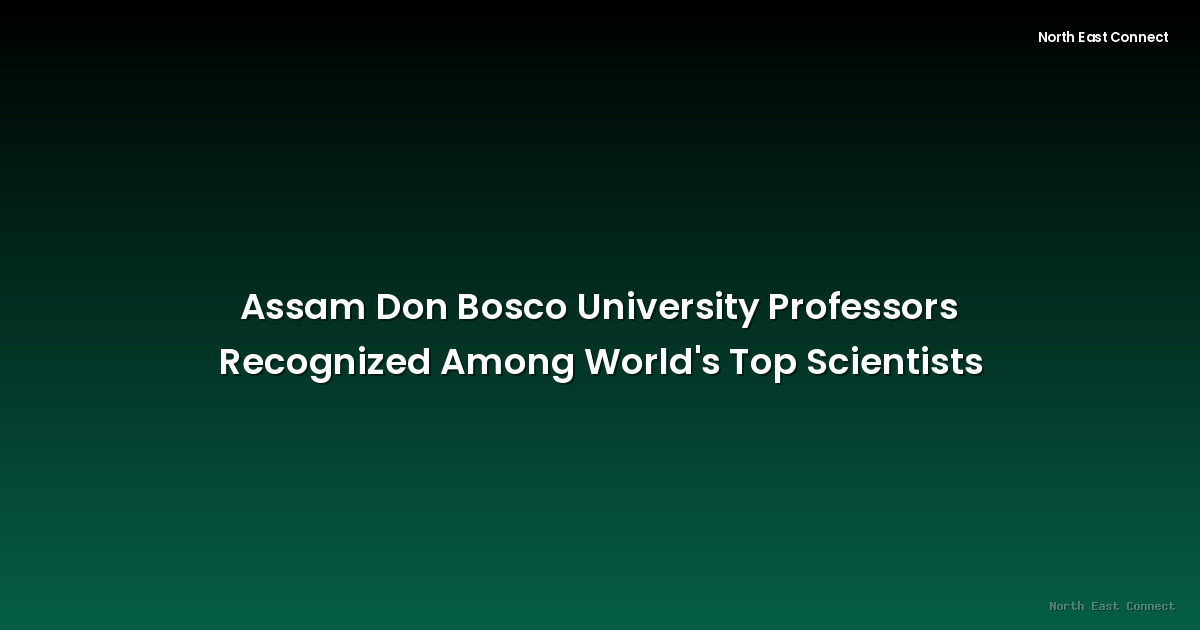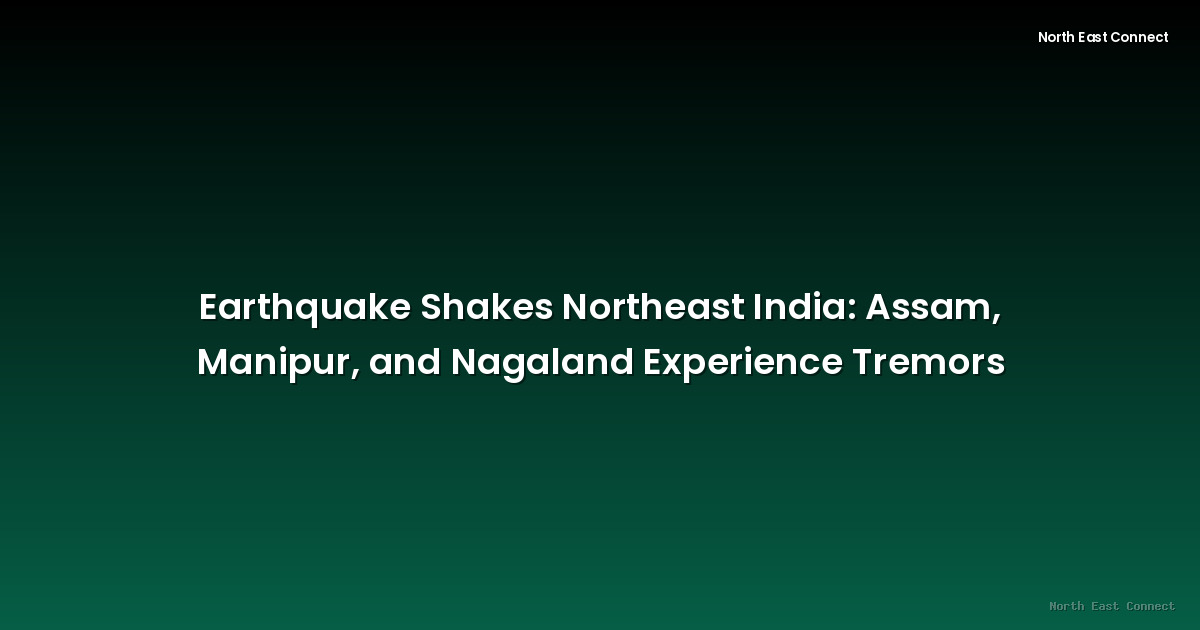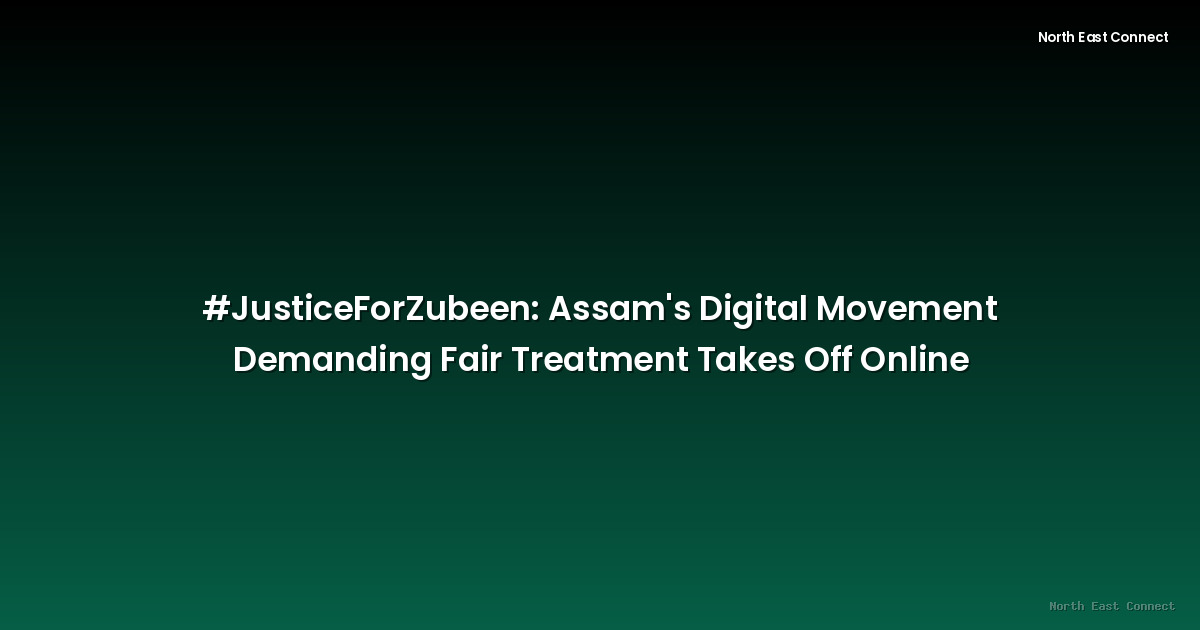2025-08-08 · News
Guwahati, the bustling capital of Assam, is grappling with a significant challenge: dwindling groundwater resources. Rapid urbanization, population growth, and unsustainable water extraction practices have placed immense strain on the city's aquifers, leading to concerns about future water security. While the mighty Brahmaputra River offers a seemingly abundant water source, its utilization for potable water requires extensive treatment, and over-reliance on it neglects the equally crucial need for groundwater conservation.
The problem is multifaceted. Increased demand from a growing population and burgeoning industries has led to excessive pumping of groundwater, exceeding the natural recharge rate. This over-extraction not only depletes the aquifers but also leads to land subsidence and potential contamination of the remaining water sources. Furthermore, inadequate rainwater harvesting infrastructure and a lack of awareness regarding water conservation among the public exacerbate the issue.
Addressing this critical situation requires a multi-pronged approach encompassing technological advancements, policy changes, and public awareness campaigns. Several potential solutions are being explored or implemented. These include:
Improved Water Management Infrastructure: Investing in modern water treatment plants capable of efficiently processing large volumes of Brahmaputra water for drinking purposes can reduce the pressure on groundwater extraction. Simultaneously, strengthening and expanding the existing water distribution network can minimize water loss through leakage.
Rainwater Harvesting: Encouraging and mandating rainwater harvesting at both residential and commercial levels is crucial. Government incentives, along with public awareness programs highlighting the benefits of rainwater harvesting, can significantly increase its adoption. This would supplement groundwater recharge and reduce dependence on unsustainable extraction methods.
Artificial Recharge of Aquifers: Exploring and implementing artificial groundwater recharge techniques is essential. This involves strategically creating recharge structures and directing rainwater and treated wastewater back into the aquifers, thereby replenishing the depleted water table.
Sustainable Groundwater Management Practices: Stricter regulations and enforcement regarding groundwater extraction are needed to prevent over-exploitation. Implementing a licensing system and monitoring groundwater levels can help ensure sustainable extraction rates. Moreover, promoting water-efficient technologies in agriculture and industry can significantly reduce overall water consumption.
* Public Awareness Campaigns: Educating the public about the importance of water conservation and responsible water usage is crucial. This involves launching awareness campaigns through various media channels, emphasizing the long-term consequences of groundwater depletion and promoting sustainable water practices.
The future of Guwahati's water security depends on a collaborative effort. The Assam government, in collaboration with local authorities, NGOs, and the community, must prioritize the implementation of these strategies. Failing to address this crisis effectively could have severe consequences, impacting the city's economy, environment, and the well-being of its residents. A comprehensive and sustainable water management plan is not just crucial for Guwahati but serves as a model for other rapidly urbanizing cities in the Northeast region facing similar challenges.

